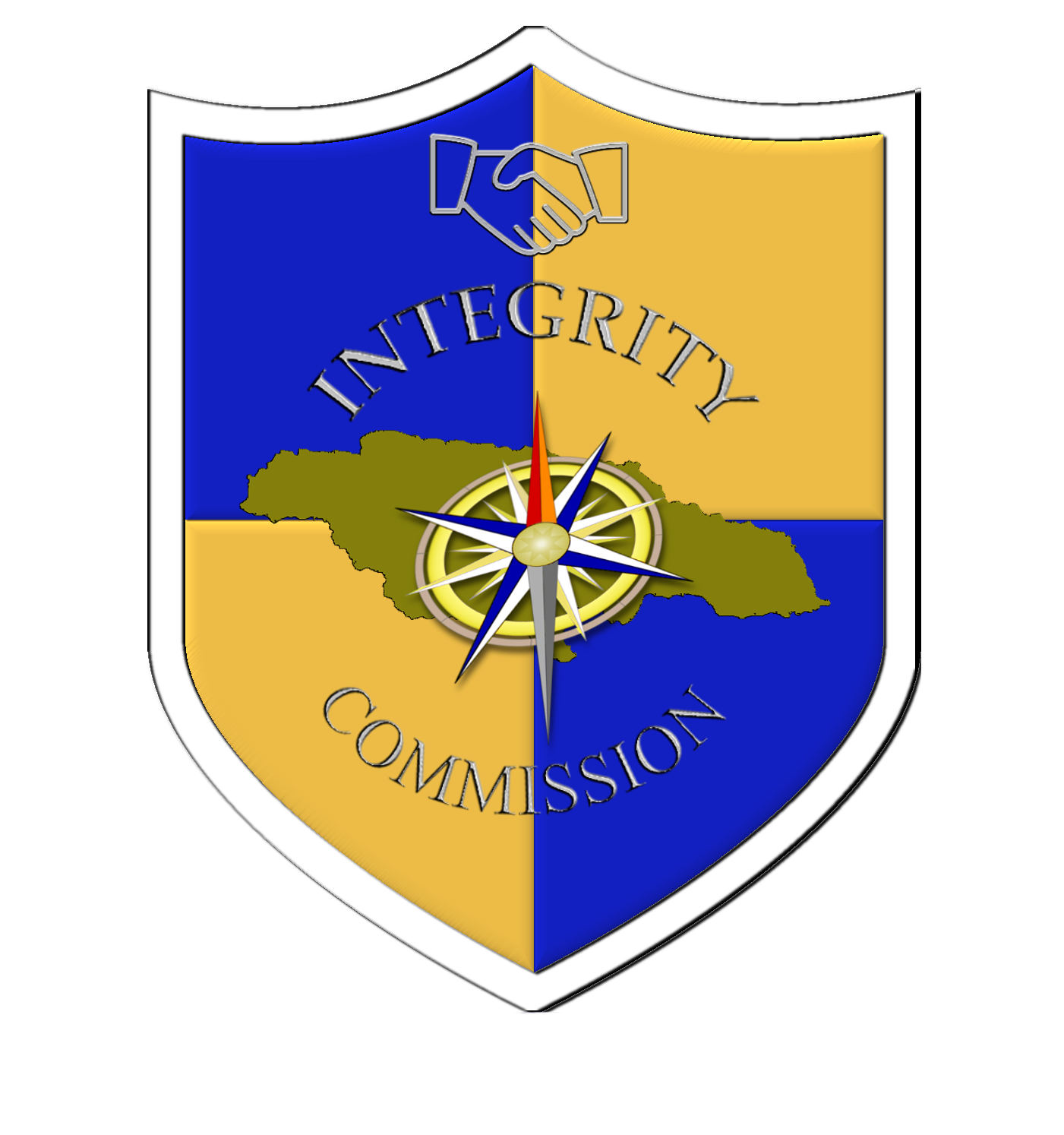
Mr. Roneiph Lawrence, the Director of Corruption Prosecution, is a skilled and dedicated prosecutor with over ten (10) years of experience in criminal practice & procedure, and a total of fifteen (15) years professional experience.
Mr. Lawrence is a proud graduate of the True Blues, Jamaica College. He subsequently matriculated to the University of the West Indies, where he obtained a Bachelor of Science Degree in Management Studies. After gaining approximately three (3) years professional experience in the private sector, particularly in the field of Accounting & Finance, he switched gears to pursue studies in Law. He was awarded with a Bachelor of Laws (LLB) from the University of London after two (2) years of study. Thereafter, he graduated from the Norman Manley Law School, having obtained a Legal Education Certificate.
Mr. Lawrence began his legal career as a Clerk of Courts, for the parish of St. Catherine. Whilst there, he honed his prosecutorial advocacy skills by successfully litigating a wide array of complex cases, to include but not limited to, corruption offences, fraud, sexual offences and other crimes. After doing a five (5) year bid in the Parish Court, Mr. Lawrence transitioned to the Office of the Director of Public Prosecution, as a Crown Counsel, where he prosecuted and argued appeals in the Supreme Court, Gun Court and Court of Appeal respectively.
Mr. Lawrence holds a Master of Laws (LL.M.), further enhancing his legal expertise and strategic approach to criminal prosecution. This advanced degree has equipped him with a deep understanding of International & Comparative Law, Corporate Law & Governance, and other legal disciplines that allows him to navigate complex legal issues. His background, in both practical and academic legal frameworks, has enabled him to contribute to the development of policies, protocols, and practices of Corruption Prosecution Division (CPD), where he has served as the Division’s Senior Prosecutor from July 2022. During his tenure at the Integrity Commission, Mr. Lawrence also facilitated training for public sector workers in various areas of law, provided legal opinions on critical matters involving the Commission’s work, and has provided wider support to the Commission as it works to fulfil its mandate.
Throughout his career, Mr. Lawrence has demonstrated a strong ability to build and present compelling cases, working collaboratively with law enforcement agencies, investigators, and fellow legal professionals. He has an unwavering dedication to ensuring justice is served with integrity.
The Corruption Prosecution Division is the one of the three (3) established Divisions of the Integrity Commission tasked with prosecuting acts of corruption and related offences; these include the offences of Illicit Enrichment, Bribery, and Failing to File or Filing of False Statutory Declarations. Some of these provisions are also applicable to members of the private sector.
Under the Integrity Commission Act the Director of Corruption Prosecutions (or her designate if she so designates), is empowered to:
- institute, undertake and conduct prosecutorial proceedings in respect of the acts of corruption;
- provide legal advice to the Commission on matters related to acts of corruption;
- collaborate with the Asset Recovery Agency to conduct proceedings for recovery of property relating to acts of corruption
- perform such other prosecutorial functions relating to acts of corruption
What is an Act of Corruption?: “An act of corruption is… an offence relating to the conduct of any person that constitutes an abuse or misuse of his office (whether or not within the public sector) for the purpose of conferring a benefit or an advantage to himself or another person, being an offence that arises under the common law or any other enactment”
SUMMARY OF POSSIBLE OFFENCES UNDER JAMAICAN LAW
- Statutory Offences
Acts of Corruption
- Corruption (Prevention) Act
A number of statutory offences are created by Section 14 of the Corruption (Prevention) Act. In summary these are as follows:
- Soliciting or Accepting Benefit for Act or Omission in Public Office Section 14(1)(a)
- Act or Omission in Public Office for Benefit to Himself or Another Section 14(1)(b)
- Fraudulent Use or Concealment of Property Derived from Corrupt Act or Omission Section 14(1)(c)
- Offering Money or Other Benefit to a Public Servant for Act or Omission in Public Office Section 14(2)
- Aiding, Abetting, or Otherwise Participating in the Commission or Attempted Commission of Offences under s. 14(1) or (2) Section 14(3)
- Citizen, Resident or Corporation of Jamaica Offering or Granting Benefit to a Person Performing a Public Function in a Foreign State Section 14(4)
- Illicit Enrichment Section 14(5)
- Use of Classified or Confidential Information for Own Benefit or Benefit of a Third Party Section 14(6)
- Use of Property Belonging to the Government for Own Benefit or Benefit of a Third Party Section 14(6)(b)
- Using or Acting as Intermediary to Obtain Decision whereby Benefit Obtained Section 14(7)
- Diverting Property for Own Benefit or Benefit of a Third Party Section 14(8)
- Agent Corruptly Accepting or Attempting to Accept Gift or Consideration for Act or Omission in Principal’s Affairs Section 14(10)(a)
- Agent Knowingly Using Document with Intent to Deceive Principal Section 14(10)(b)
- Offering Gift or Consideration to Agent for Act or Omission in Principal’s Affairs Section 14(11)(a)
- Knowingly Giving to Agent Document to Mislead Principal Section 14(11)(b)
PENALTIES
All offences committed under this Act, by virtue of Section 15(1) are triable in a Parish Court (triable summarily) or triable at the Circuit Court.
If convicted at the Parish Court level, you are liable as follows:
- For first time offence: fine of two (2) million dollars or less OR Imprisonment of 2 years or less Or both fine and imprisonment; and
- For second or subsequent offence: fine of three (3) million dollars or less or imprisonment of three (3) years or less. Or Both fine and imprisonment.
If convicted at the Parish Court level, you are liable as follows:
- First offence – Fine not exceeding fifteen (15) million dollars or imprisonment not exceeding five (5) years or both such fine & imprisonment.
- Second offence – Fine or imprisonment for a term not exceeding ten (10) years or both such fine & imprisonment.
Declaration Offences
- Integrity Commission Act
The Integrity Commission mandates the filing of annual Declarations (covered by DIC’s presentation), and a number of offences relate to the failure or supply the mandated information. These are:
- Failing to File a Declaration as Required under Section 41(2) Within Thirty (30) Days of Notice of Failure to file same. Section 41(7)
PENALTY
Summary Conviction: Fine of $20,000 for each month offence continues after the expiration of the thirty (30) days in addition to any penalty under Section 43(1) (fine =<$500,000 Or =<6month imprisonment).
- Failing to Submit Statutory Declaration Without Reasonable Cause Section 43(1)(a)
- Failing to Provide Information to Director of Information & Complaints Without Reasonable Cause Section 43(1)(b)
- Failing to Attend an Inquiry of the Director of Investigation Section 43(1)(c)
PENALTY
The penalties for the three offences under Section 43(1) are:
Summary Conviction: Fine not exceeding $500,000 or to a term of imprisonment not exceeding six (6) months & the Court may make an order mandating the person to comply with the requirement in respect of which the offence was committed
- Knowingly Makes a False Statement in a Statutory Declaration Section 43(2)(a)
- Knowingly Gives False Information at an Enquiry Conducted by the Director of Investigation Section 43(1)(b)
PENALTY
The penalties for the offences under Section 43(2) are
Summary Conviction: Fine not exceeding $2,000,000 or to a term of imprisonment not exceeding two (2) years & the Court may make such orders as it thinks fit.
“Interfering” Offences
Integrity Commission Act
While a number of offences are created under this Act, most relate to the filing of one’s declaration (covered above). However other offences created under the act, these include:
- Section 37(4)- which makes it an offence to make a complaint or give false and misleading information to the Commission; and
- Section 37(7)- Offence to take harmful action against another to include interfering with a person’s lawful employment because they made a complaint.
Penalty: Summary Conviction: Fine not exceeding one millions dollars ($1,000,000) or to imprisonment not exceeding one (1) year.
- Common Law Offence
Misconduct in Public Office
This is a common-law offence triable on indictment. It relates strictly to holders of public offers and criminalizes an act or failure to act which breaches the duties attendant upon that office.
Offence is often related to a breach of one of more statutory offences.
Bribery
While bribery is also a common law offence, it has been codified by statue (the Corruption Prevent Act). The elements of the offence are the same as some of the statutory offences. The decision regarding this is therefore subsumed under the discussion regarding the statutory offence.
